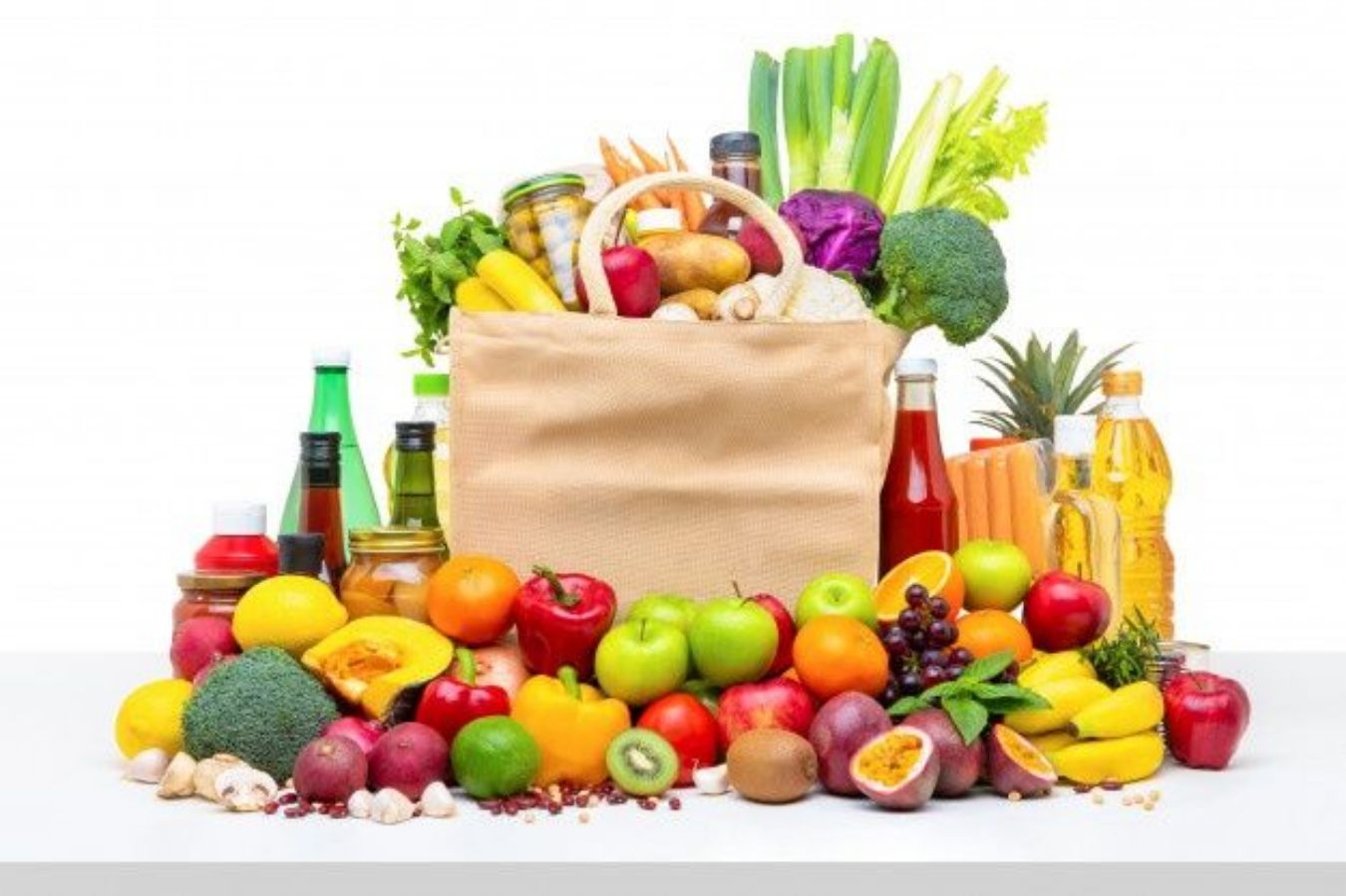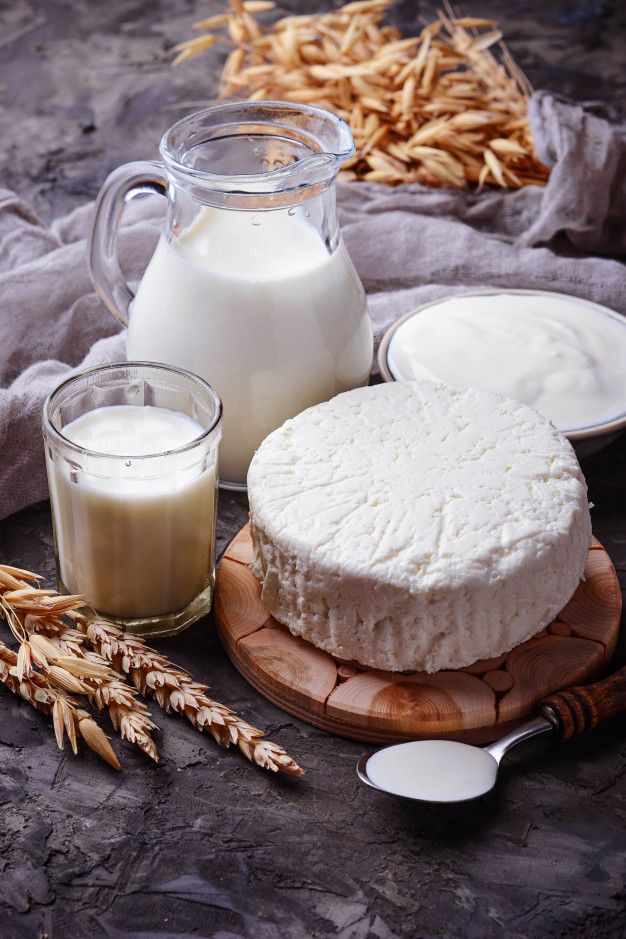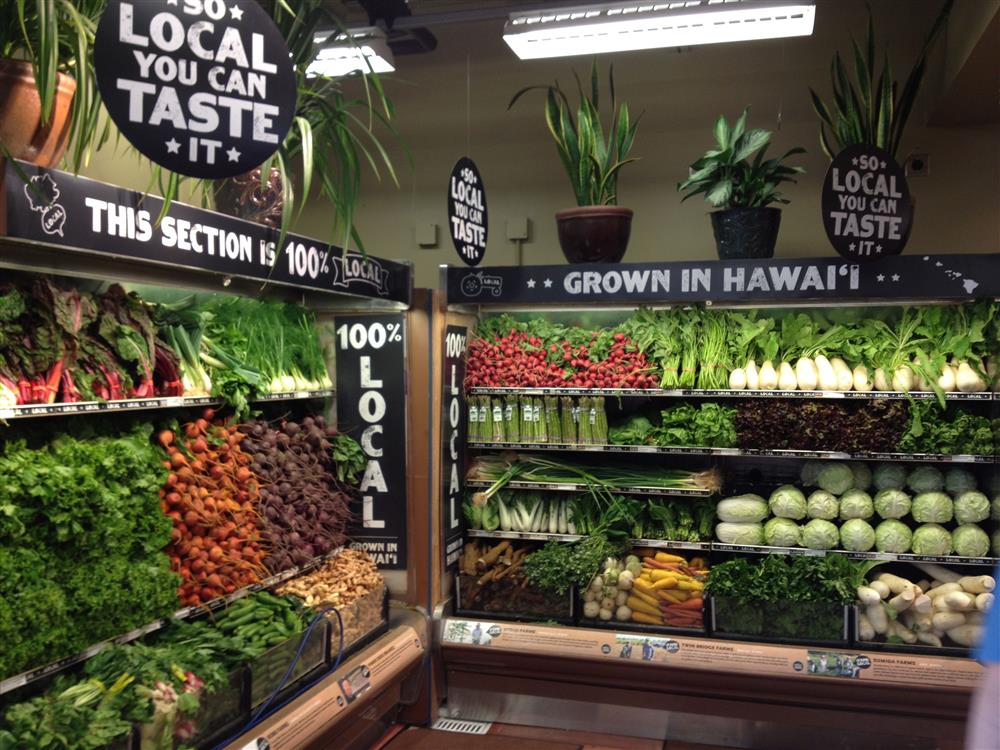Is there anything more frustrating than slicing into a bright green watermelon only to find that the interior is pale and tasteless? Maybe you're used to bringing home a carton of blueberries only to find that they are spoiled by the next morning. It's important to know a few tricks to make your visit to the produce department a success. We've gathered some guidelines from our experts on shopping for fresh products like fruit, meat, and vegetables.
Guidelines When Shopping For Fresh Products?
You need to be aware of a couple of things before you start picking through those luscious golden delicious apples or sorting through the rows and rows of lettuce leaves. To ensure that fruits and vegetables are delivered to grocery stores at their freshest, most commercial farms pick them well before ripeness. The best fruits and vegetables are usually identified using our senses, and you will need to use your hands, eyes, and nose to do so.
1. Ensure Cleanliness Is A Top Priority
- Cleanliness is very important. You should only purchase food from reputable businesses near me that observe food safety regulations. Look for signs of cleanliness within the facility and make sure the odor and appearance are clean.
- At the store entrance, use the hand sanitizer if provided. Use the shopping cart handle to wipe your hands.
- When reusable bags are used, clean them frequently.
2. Check Out Dairy And Milk Products Near Me
Image source : Pinterest
- Make sure the cartons and containers you purchase for dairy products are cold.
- Check the eggs for damage and cracks near me.
- Shop for milk and other dairy products toward the end of your shopping trip. This will minimize the time the items are left out of the refrigerator.
3. Select Your Fish And Seafood Carefully
- You should only purchase fish from reputable sources near me, such as grocery stores and seafood markets.
- Make sure the fish is properly refrigerated. Look for smooth, shiny, firm flesh that does not separate from the bones, and check to see if the odor is fresh rather than overly "fishy".
- Make sure that seafood packages are sealed tightly and free of dents and tears, and that they are packed well in ice. Packages containing ice crystals should be avoided. This indicates that the seafood has previously been thawed.
- Seafood displayed in a separate case or physically separated from raw fish, such as shrimp, crab, or smoked fish, must be unwrapped when cooked. Fresh raw fish can contain bacteria that can contaminate cooked fish.
4. Examine The Packages
- Food packages near me should not have holes, tears, or openings. You should not be able to see any sign of thawing in frozen foods. You should be able to feel the coldness of frozen food.
- Make sure the seals are intact. An open lid on a jar means it has lost its vacuum, so the product may be tainted with contaminants. You should not purchase a food product whose seal appears damaged or tampered with. Contact the store manager immediately if you see a defective cap.
- It is wise not to buy cans that are deeply dented (you can stick your finger into one), bulging, rusted, or have dents on the top or side seam. Those with deeply dented or bulging cans may be at risk for botulism, while those with sharp dentures may have damaged seams and been able to house bacteria.
5. Check Out The Meat And Poultry Near Me
- Be sure that the packaging near me is tightly sealed, and that it is very cold when touched.
- Look for chicken that is pink, not gray.
- Whenever you buy bacon or fresh sausage near me, check the package for the Safe Food Handling label. Meat with this label has been safely processed and includes cooking and handling tips.
- Shop for meat and poultry after getting non-perishable groceries.
6. Don't Mix Certain Foods Near Me
- Before placing raw meat, poultry, and seafood in your cart, place them in plastic bags near me. In this way, they prevent leaks and drips onto prepared foods such as bread and fruits, and vegetables.
- Place prepared foods in separate bags from raw meat, poultry, and seafood when you check out.
The Best Ways to Clean The Fresh Product Near Me
- Remove dirt and surface microbes by rubbing fruits and vegetables under running water.
- An empty bowl is more suitable than a sink when immersed in water since a sink's drain area can harbor bacteria.
- Scrubbing with a vegetable brush is recommended for produce with a hard rind or firm skin.
- In order to prevent microorganisms from entering the stem or blossom end of the produce, the rinse water should be no more than 10 degrees colder than the produce.
NOTE: Do not wash fruits or vegetables with soap, detergent, or bleach solutions. The pores in fresh produce may allow the chemicals to seep in, damaging the safety and taste of the food.
- It is often advertised as the best way to keep fresh fruits and vegetables safe in the refrigerator that chemical rinses and other treatments are used for washing raw produce.
- In the absence of safety evaluations and standardizations, the FDA advises consumers against using commercial produce washes.
Example Of How To Clean Vegetables and Fruits Near Me
Among the firm produce are apples, cucumbers, and pears :
After thoroughly rinsing under running water and brushing with a vegetable brush, remove the stem area and peel the tomato.
Fruits like grapes, cherries, and berries:
To prevent the spread of spoilage organisms, store spoiled or moldy fruit in the refrigerator until ready to use. The fruit should then be rinsed thoroughly under cool running water.
Herbs:
Wash under running water or in a bowl of cool water and dry with paper towels.
Green leafy vegetables:
Lettuce and other greens should be rinsed separately and individually, discarding any outside leaves that are torn or bruised. The soil can be loosen by immersing leaves in cool water for a few minutes.
Water laced with white vinegar (1/4 cup distilled vinegar per 1 cup water), followed by a clean water rinse, reduces bacterial contamination, but the taste and texture may be negatively affected. To remove excess moisture, wipe the salad with paper towels or spin it using a salad spinner after rinsing.
Watermelons:
Certain types of melons, particularly those with rough, netted surfaces, can harbor microorganisms that can be transferred to the flesh when they are cut. Whenever possible, rinsing melons thoroughly under running water before peeling or slicing will minimize the risk of cross-contamination. There has been evidence that rinsing unpeeled melons with hot water reduces bacteria without changing the texture.
Tips For Shopping Fresh Products Like Fruit And Vegetables Near Me
Image source : Pinterest
When purchasing fresh produce, there are many factors to consider, including selection, purchase, and preparation. The tips and tricks in this guide will help you to make your produce selection more nutritious and more cost-effective while avoiding food safety hazards. Here are top tips for buying fruit and vegetables from the supermarket to your kitchen counter.
1. Do Not Buy Any Damaged And Bruised Products
The cavity is an ideal place for bacteria to hide, propagate, and spread quickly throughout the fruit or vegetable. In addition, damaged produce is less nutritious and less tasty.
2. Give Product A Light Squeeze Before Purchasing
It should give slightly under pressure when ripe. Unless an apple, none of the other fruits should be rock hard when ripe. When apples, pears, bananas, and avocados are left at room temperature after picking, they continue to soften.
3. Smell The Fruit
Ripe fruit has a sweeter aroma.
4. Select Smaller Pieces Of Fruit
Smaller fruits tend to be sweeter.
5. Choose Colorful And Vibrant Products
Make your menu colorful by selecting a variety of produce. A fruit or vegetable of a different color will contain a different phytochemical, which may have different nutritional qualities.
6. Buy Product Seasonally
There are some fresh fruits and vegetables that are not available all year round. Off-season sales of certain products lead to substantial shipping costs on retailers, which are passed along to consumers. It is better quality and less expensive to buy fruits and vegetables that are in season.
7. Chilled Fruit Is Best
Choose fresh fruits and vegetables that are refrigerated or surrounded by ice when buying them. If any fruit or vegetable has already been cut in half or opened in any way, it must be stored and displayed in a refrigerator.
8. Compare The Prices
Compare the prices of loose produce and prepackaged produce. Prepackaged goods are often more expensive than loose, single unit produce. Choosing the goods yourself also allows you to choose better quality fruits and vegetables.
9. Avoid Being Afraid Of Canned Fruits And Vegetables
The nutritional values of canned produce are the same as those of fresh and frozen goods, despite the higher sodium content. You can also opt for lower sodium varieties and canned produce if fresh produce is not readily available.
10. Separate Your Meat, Poultry And Seafood From Your Fresh Fruits And Vegetables
When shopping for fresh produce, separate it from raw meat, poultry, and seafood in the shopping trolley and when bagging. Potentially contaminating pathogens are present in blood and juice from raw meat.
11. Use A Light Rinse Before Consuming Fruit And Vegetables
Rinsing your produce reduces your exposure to potentially harmful microorganisms and can wash away pesticides and nasty chemicals.
Conclusion
Healthy bodies are made up of vitamins, proteins, minerals, and fiber found in fresh fruits, meats, and vegetables. It is crucial to select high-quality fruits and vegetables if you want to ensure that they're safe to consume.
Select fruits, meats, and vegetables that are fresh-smelling, well-shaped, and have a good texture and color.
The best thing you can do is to shop for fresh produce often, and only buy what you will use within a few days. By doing this, you will reduce the amount of food you waste due to spoilage.
You should check the expiration dates on precut fruits, meats, and vegetables. Make sure to choose the freshest items, and eat them by their expiration date.
It may take a few more minutes to pick quality fruits, meats, and vegetables, but it will be well worth it in the long run.









